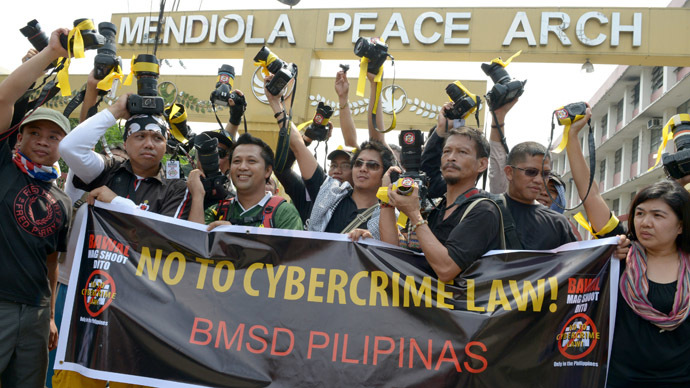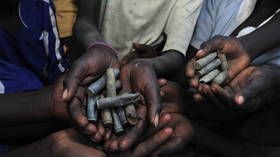Internet freedom on decline worldwide as governments tighten grip - report

Improved surveillance, takedown of opposition websites for “illegal content” and paid pro-government commentators are among the increasingly sophisticated tools used by authorities to restrict internet freedom, a new report claims.
The 2013 Freedom on the Net report, compiled by
non-profit Freedom House, says that 34 out of the 60 countries it
surveyed suffered a falloff in internet freedom over the past
year.
Iran, Cuba, China and Syria were ranked as countries with the
greatest restrictions. China, which blocks millions of websites
and employs thousands-strong armies of censors, “led the way in
expanding an elaborate technological apparatus for system
internet censorship, while further increasing offline coercion
and arrests to deter freedom of expression online.”
Iceland, Estonia and Germany took the podium places in the
ranking, followed by the United States.
Nonetheless, the US was castigated for a “troubling decline” in
internet freedom, largely as a result of wide-ranging
surveillance practices revealed through Edward Snowden’s NSA
leaks.
“Critics have raised concern that the secret NSA programs may
violate the 4th Amendment of the United States Constitution,
which protects people inside the US (citizens and non-citizens
alike) from unreasonable search and seizure, as well as human
rights enshrined in international agreements,” stated the report.
In 35 of the 60 countries examined, the government has “either
obtained more sophisticated surveillance technology, increased
the scope of people monitored, or passed a new law giving it
greater monitoring authority.”

The authors also suspect that surveillance may have increased in
other countries which are simply “better at covering their
tracks.”
Many countries are also moving from technological to legal
solutions in their battle against freedom of expression.
“While blocking and filtering remain the preferred methods of
censorship in many countries, governments are increasingly
looking at who is saying what online, and finding ways to punish
them,” said Sanja Kelly, project director for Freedom on the
Net at Freedom House.
“In some countries, a user can get arrested for simply posting
on Facebook or for “liking” a friend’s comment that is critical
of the authorities,” she added.
The report says that in 26 countries, people were arrested for
posting “socially-relevant statements on social-media
sites.”
Russia - which is otherwise placed in the middle of the ranking -
is singled out as an “important incubator” of indirect
methods of repression which are then adopted by other countries,
particularly former Soviet republics.
Among the authorities’ actions is the passing of a
“broadly-worded” internet ‘blacklist’ law last year that
allows prosecutors to order websites offline without judicial
evidence. While the law is theoretically intended to block
illegal content – such as child pornography – the authors say
that it has been used against opposition websites and blogs.
The government is also accused of using proxy groups, which
receive public funds, “to widely engage in all kinds of
digital activities, including paying commentators to post
content, disseminating DDoS attacks (cyber attacks), and
hijacking blog ratings.”
While the practice of paying commentators is said to have been
pioneered in China and Russia, the report says that it is now
being adopted in at least 22 countries on its list, such as
Malaysia and Belarus.
On the whole, the tone of the report is of overwhelming concern,
but in sixteen countries the situation has improved.
One major positive trend has also emerged – the rise of online
activism, designed to protest laws that adversely affect the
internet, or society as a whole. The report says that 11
countries – including the Philippines and Mexico – were able to
repeal or soften freedom-restricting laws as a result of online
campaigns.
“There is a rising public consciousness about internet freedom
and freedom of expression issues. Citizens’ groups are able to
more rapidly disseminate information about negative proposals and
put pressure on the government,” wrote the authors.
“In addition, information technologies have started to play an
important role in advocacy for positive change on other policy
topics, from corruption to women’s rights.”














